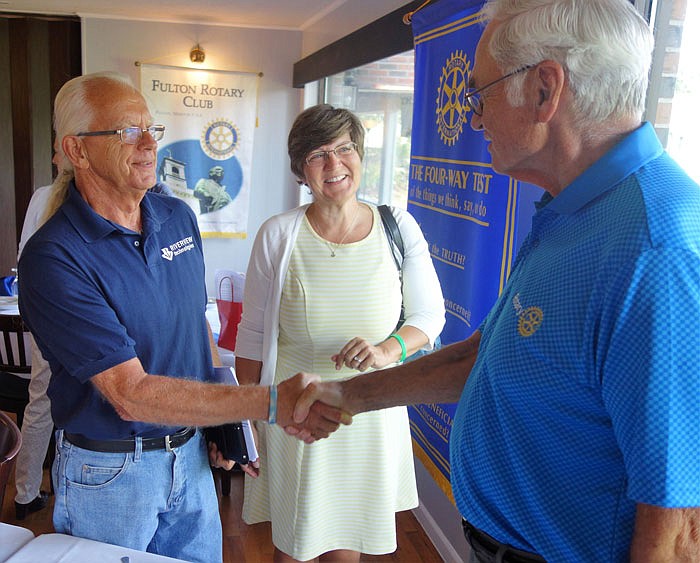Cybersecurity threats are a growing problem, and they aren't going away any time soon, according to Ray Buchli, president of Riverview Tech.
"Not to scare the living you-know-what out of you, but it's an ongoing situation, and it keeps growing," he said. "When you look at the numbers, it's frightening."
Buchli spoke to the Fulton Rotary Club on Wednesday about the ever-expanding threats in the cyber world. He hosts the Mid-Missouri weekly radio show "Ask the Computer Expert" and has seen his program shift topics from systems and hardware to keeping computers safe from hackers.
"In the radio program, it's gotten more into hacking and security," he said. "There are 30,000 websites a day that get targeted by malware. It doesn't sound like a big deal, but it is."
Buchli said the emergence of a worldwide focus on keeping data secure is a result of the case of Edward Snowden, who in 2013 leaked information from the National Security Agency.
"Snowden hit the market, and everything in the industry went crazy," he said. "(IT) guys are going to have a great job, and they'll have long careers."
According to Buchli, the most common way hackers try to get information such as passwords from people is by phishing, or sending fake emails posing as legitimate companies to try to get customers to surrender their password and information.
"Phishing is probably the biggest thing going on right now," he said. "If you want to be really careful, take a look at the header that says where it comes from. If you ever get an email that says 'check this out,' automatically delete it because they're going to load malware on your machine."
Hackers are often very intelligent and often work in groups, Buchli said.
"These guys that are hackers are probably the best programmers in the world, and they're really, really good," he said. "It's really hard to even keep up with what's going on."
During his presentation, Buchli also emphasized the importance of protecting computers by downloading an antivirus system. He encouraged people to consider protecting all their devices from potential threats.
"You need to have one on your phone. It is going to be the number-one device hacked this year," he said. "We've gotten to the point where hackers go after your phone and don't even bother with your computer."
Another protection measure people need to consider assessing is their passwords. Buchli, who provided a list of the 25 most popular passwords, said 68 percent of people use one of them.
"An eight-digit numerical password can be hacked by software in nine hours max," he added.
According to Buchli, the most secure passwords don't necessarily have to include a mix of different types of characters, but he encouraged people to choose a longer phrase.
"You don't have to have those exclamation points and special characters on there; you just have to put a phrase in there," he said. "If you have a 25-character phrase, it takes software 188 quadrillion years to figure it out."
People today live in a world where they need to constantly make sure they are using most secure practices to keep safe from hackers, Buchli said.
"Cybersecurity is a total disaster. It's going to be with us, and there's nothing you can do about it," he added. "You just have to try and protect yourself."

